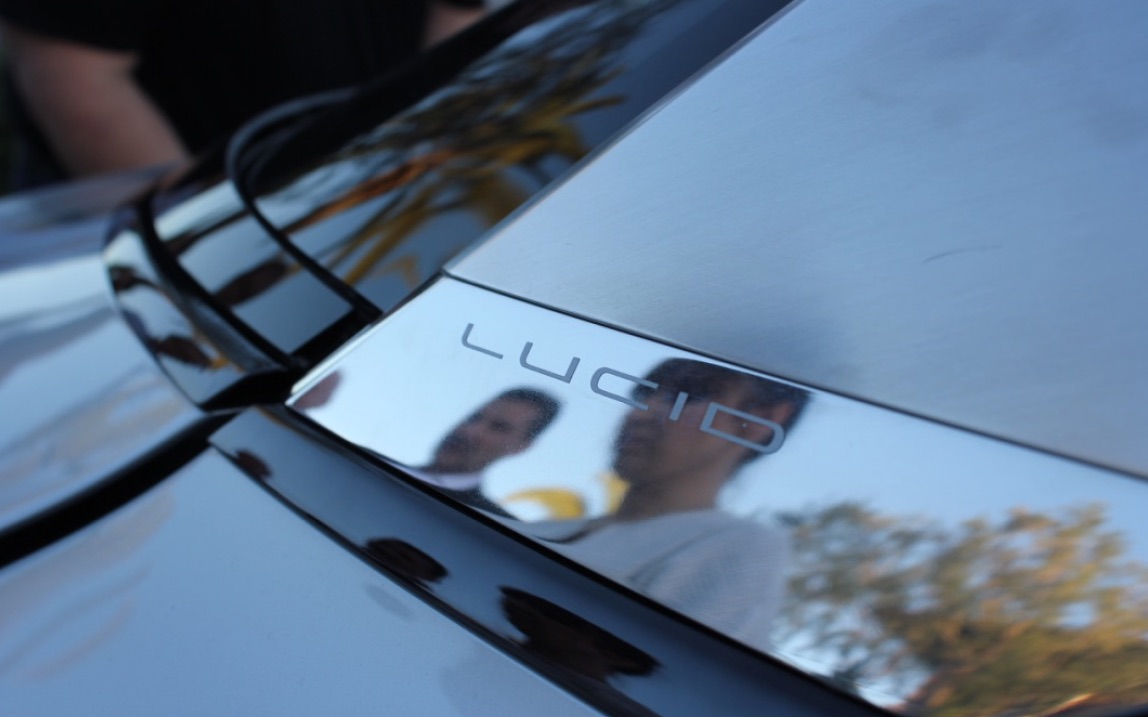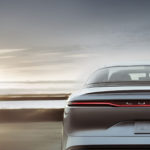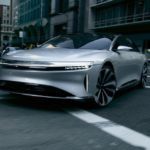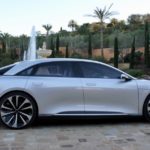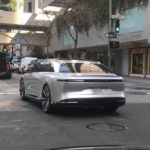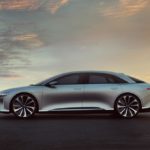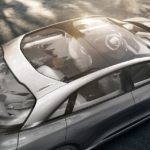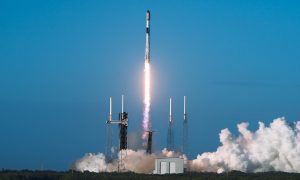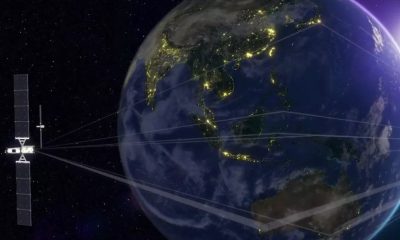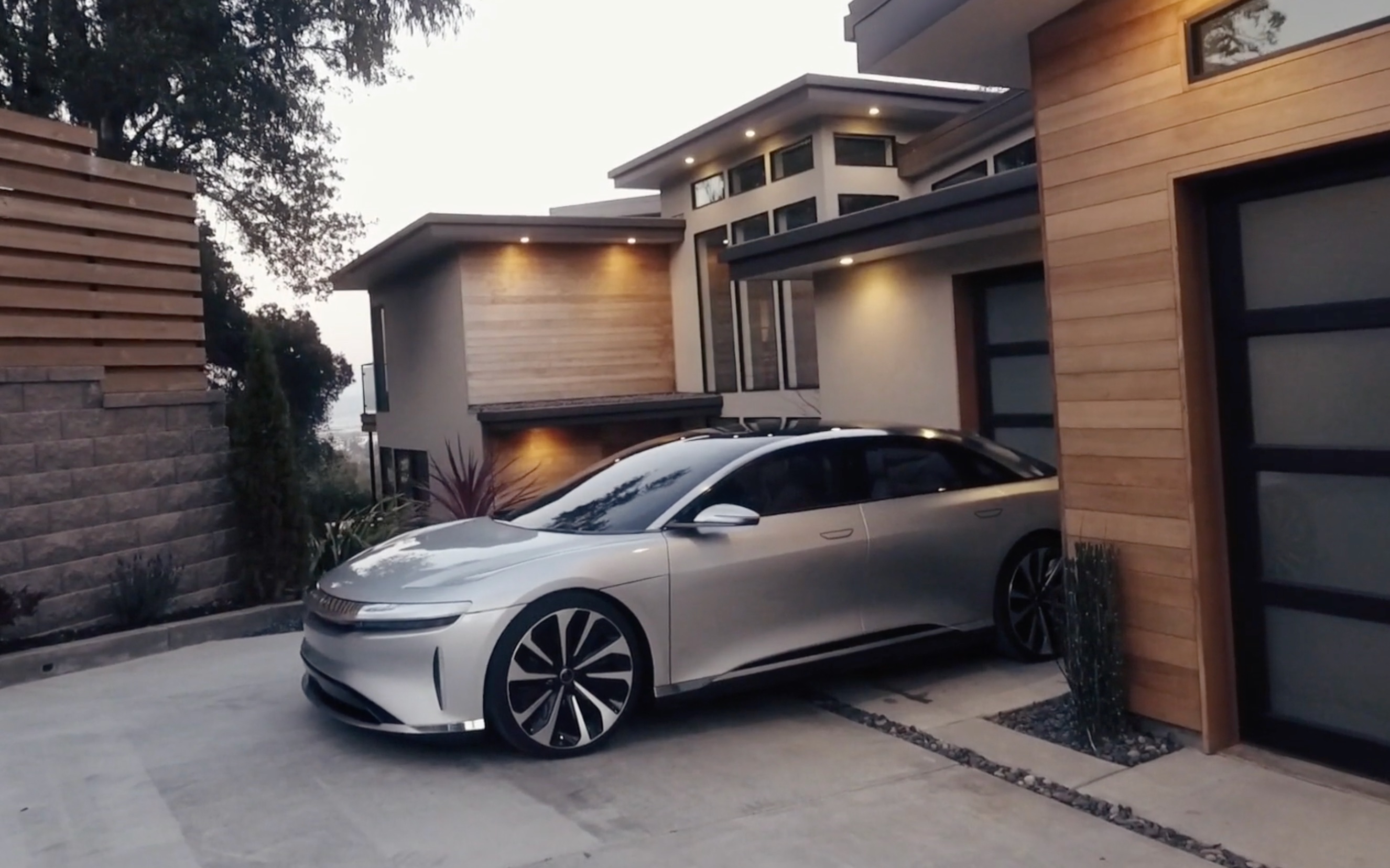

News
Exclusive: A talk with Derek Jenkins, VP of Design at Lucid Motors
The following post comes courtesy of NextMobility.co
I recently had a chance to talk with Lucid Motors VP of Design, Derek Jenkins, about the design philosophy behind the company’s ultra-luxurious Lucid Air. The Silicon Valley-based electric car startup founded in 2007 as Atieva has raised over $130M to date and on the precipice of achieving something no other electric car company within this space, outside of Tesla, has been able to do at scale – float a beautifully executed vision of the not-so-distant future that the greater electric vehicle community actually believes will come to fruition. And, they absolutely can’t wait for it.
Development of Lucid’s electric car platform has been well underway since the beginning of the company, but it wasn’t until 2015 that the first vehicle: the Air, began to take shape. Jenkins, an industry veteran who joined the startup in 2015, is leading the design team at Lucid Motors.
Lucid is aiming directly at the German automakers that historically have dominated the luxury car market. “From the beginning, we were very much focused on a luxury product; we felt like there is still a big opportunity at that end of the market,” says Jenkins. Lucid believes that there will still be a significant amount of time before German luxury auto manufacturers introduce electric vehicles in a meaningful way. “There was a lot of open opportunity to do something that is more forward-facing and less based on tradition, that is kind of the foundation,” said Jenkins.
Lucid says they are taking full advantage of the electric powertrain and the “miniaturization” of the electric motors in their design process, customizing the platform to meet the needs of their design. Lucid’s electric motors, transmission, and differential are all “very compact” compared to the vehicle’s relative power output.
Jenkins tells me that their team rearranged the lithium ion cells in the battery pack to utilize two separate modules, as a way to put more emphasis on opening up interior space. Some areas of Lucid Air’s 130 kWh battery pack is double-stacked, which allowed their designers to maximize interior space by removing certain sections of the vehicle’s floor. The design of the battery pack is a far departure from the single “skateboard” style pack used by Tesla.
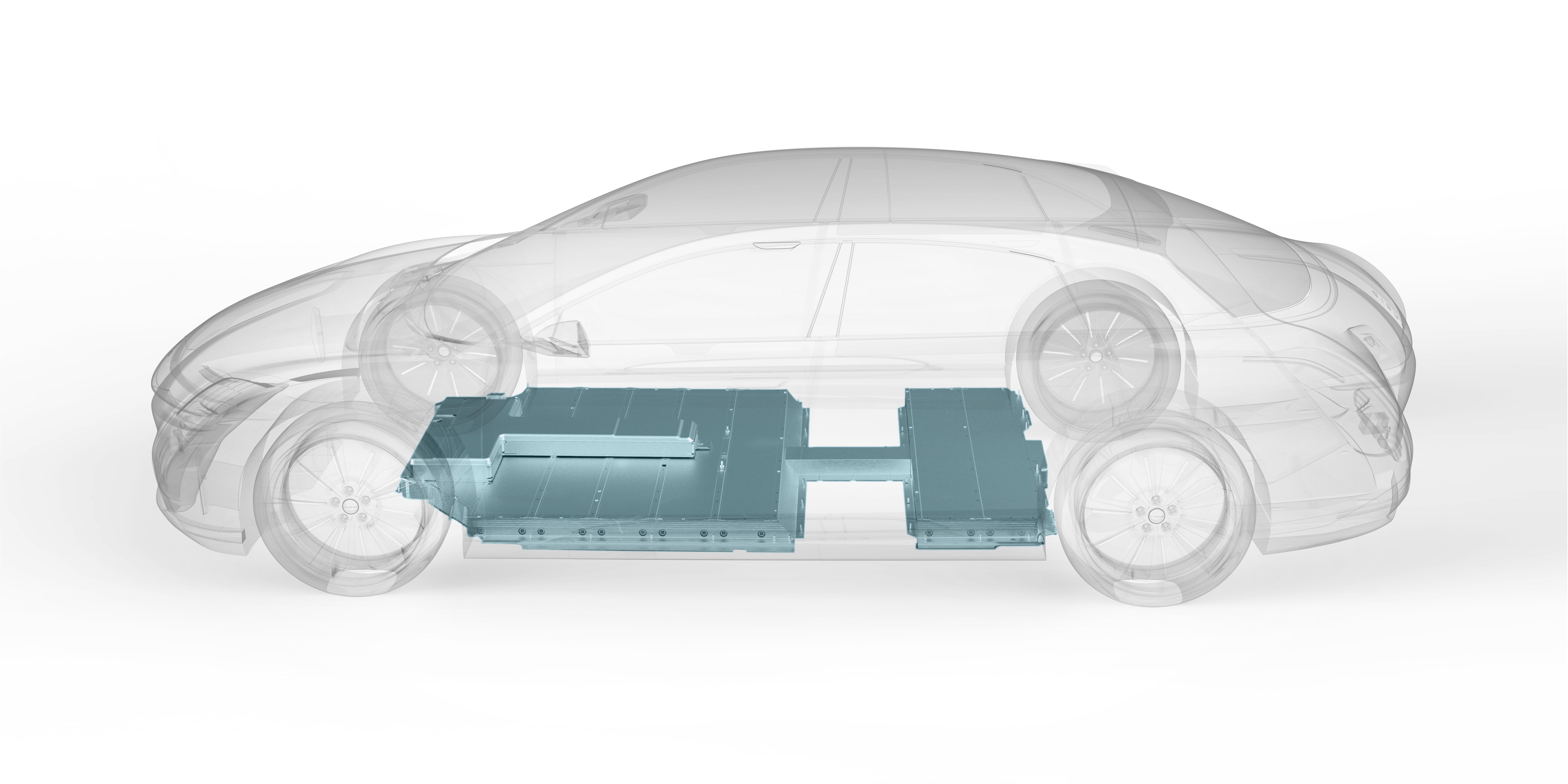
Jenkins tells me that they wanted the interior experience of the car to feel very open, airy, and light. They made the dashboard less bulky, decreased the weight of the doors and focused on letting more air into the car, hence arriving at the name ‘Air’.
Designing for an Autonomous Future
“It’s hard to say whether we will reach full level 5 autonomy in the life cycle of this vehicle.” Jenkins and the Lucid design team made the driver’s area focused on ergonomics. All touch screens are easily within reach and the vehicle is clearly designed with an incredible focus on passenger comfort.
“We’re designing the interior for a dual purpose. I look at that center screen to be used way more in autonomous mode so I can dive into my email or watch TV. You need to create something that someone can be more relaxed in autonomous mode.” – Derek Jenkins, VP of Design at Lucid Motors
Lucid decided not to integrate a fold-away steering wheel, something that other electric car makers are looking to integrate. “We still want the Air to be an amazing driving vehicle, something thoroughly enjoyable to drive and feel physically connected to the car,” says Jenkins.
One design feature that Jenkins highlighted was the Air’s use of brushed aluminum trim that is said to come with a big wow-factor. Designing a vehicle for the future while making it appealing to current customers was a constant balancing act for the Lucid design team.
Still, Lucid reemphasizes Air’s target market will be the typical German luxury sedan buyer. Jenkins says that the Air is designed to have an overall vehicle size of a mid-size luxury sedan (E-Class), but with the luxurious interior of a large luxury sedan (S-Class), and the driving performance and design of a coupe class (CLS-Class). “This is the redefinition of luxury in a real modern sense”.
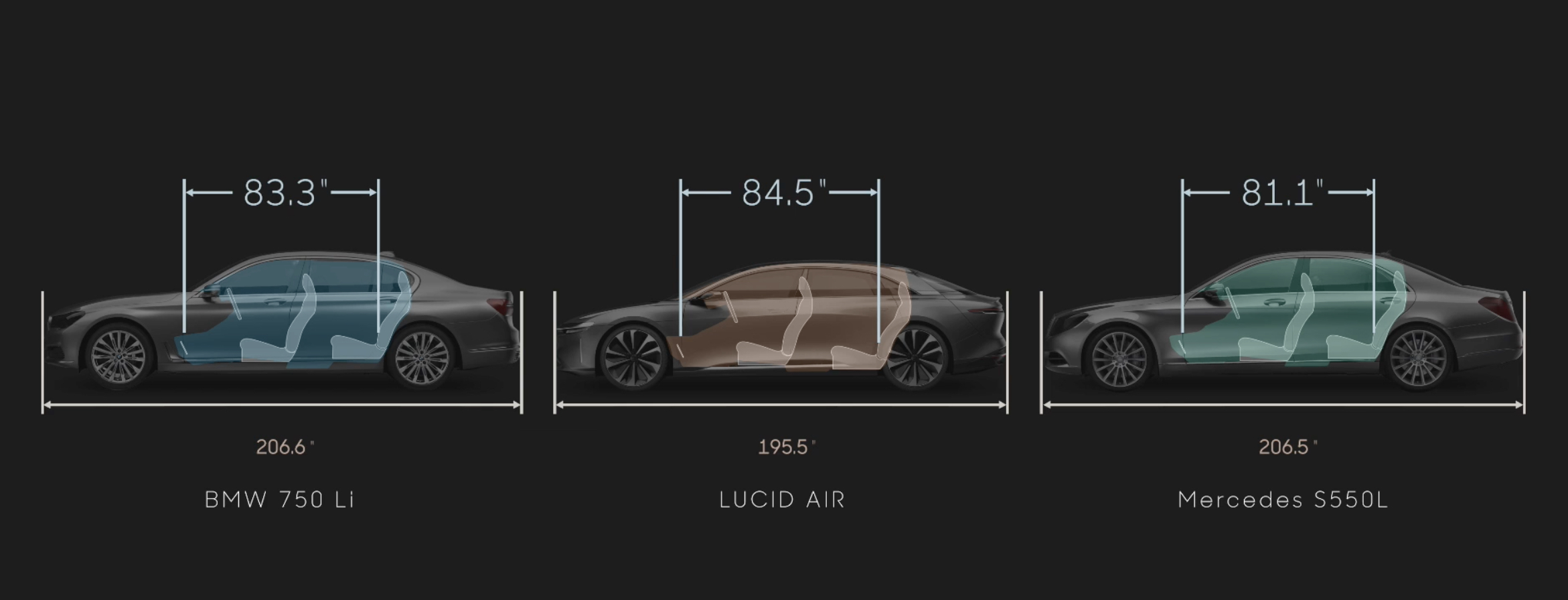
Making the leap to Lucid Motors
Jenkins joined Lucid Motors in July of 2015 and was previously Director of Design at Mazda North America. Jenkins has nearly 25 years of design experience from Audi, VW, and Mazda, and lead the design of many vehicles, including the new 2016 Mazda Miata, VW Scirocco Concept, and Mazda 6. Jenkins, an industry design leader, took a huge risk jumping from a leadership position at Mazda to a Silicon Valley startup, but has no regrets.
“I had been in the industry designing cars for over 20 years… I was sensing a lot of change in the horizon towards electrification; I witnessed the success at Tesla… It was just too attractive to pass up,” said Jenkins.
Lucid expects to attract customers that expect to have an ultra-luxurious interior in the form of a “private jet on wheels“, and new focus on technology and an advanced powertrain. While many are quick to jump to the conclusion that Lucid will have an uphill battle in a market dominated by Tesla, Jenkins says that they didn’t design the Air to be a “Tesla killer”. Rather, the company aims to produce a vehicle that is fundamentally different than Tesla’s offerings.
Jenkins notes that Lucid has been able to keep their headcount low during the development of the vehicle, so they can easily collaborate with other areas within the company and form quick divisions. “It’s a huge advantage, it’s really much more of a form and function exercise, for me as a designer. At the big companies, you are really styling over a given architecture. Here we are actually working together to create a great piece of design and engineering. That’s a big difference.”
First production of Lucid Air is expected in 2019. The company has been raising capital to fund development on a planned $700 million electric vehicle factory in Casa Grande, Arizona.
News
Tesla begins Robotaxi certification push in Arizona: report
Tesla seems serious about expanding its Robotaxi service to several states in the coming months.

Tesla has initiated discussions with Arizona transportation regulators to certify its driverless Robotaxi service in the state, as per a recent report from Bloomberg News. The move follows Tesla’s launch of its Robotaxi pilot program in Austin, Texas, as well as CEO Elon Musk’s recent comments about the service’s expansion in the Bay Area.
The Arizona Department of Transportation confirmed to Bloomberg that Tesla has reached out to begin the certification process for autonomous ride-sharing operations in the state. While details remain limited, the outreach suggests that Tesla is serious about expanding its driverless Robotaxi service to several territories in the coming months.
The Arizona development comes as Tesla prepares to expand its service area in Austin this weekend, as per CEO Elon Musk in a post on X. Musk also stated that Tesla is targeting the San Francisco Bay Area as its next major market, with a potential launch “in a month or two,” pending regulatory approvals.
Tesla first launched its autonomous ride-hailing program on June 22 in Austin with a small fleet of Model Y vehicles, accompanied by a Tesla employee in the passenger seat to monitor safety. While still classified as a test, Musk has said the program will expand to about 1,000 vehicles in the coming months. Tesla will later upgrade its Robotaxi fleet with the Cyercab, a two-seater that is designed without a steering wheel.
Sightings of Cybercab castings around the Giga Texas complex suggests that Tesla may be ramping the initial trial production of the self-driving two-seater. Tesla, for its part, has noted in the past that volume production of the Cybercab is expected to start sometime next year.
In California, Tesla has already applied for a transportation charter-party carrier permit from the state’s Public Utilities Commission. The company is reportedly taking a phased approach to operating in California, with the Robotaxi service starting with pre-arranged rides for employees in vehicles with safety drivers.
News
Tesla sets November 6 date for 2025 Annual Shareholder Meeting
The automaker announced the date on Thursday in a Form 8-K.

Tesla has scheduled its 2025 annual shareholder meeting for November 6, addressing investor concerns that the company was nearing a legal deadline to hold the event.
The automaker announced the date on Thursday in a Form 8-K submitted to the United States Securities and Exchange Commission (SEC). The company also listed a new proposal submission deadline of July 31 for items to be included in the proxy statement.
Tesla’s announcement followed calls from a group of 27 shareholders, including the leaders of large public pension funds, which urged Tesla’s board to formally set the meeting date, as noted in a report from The Wall Street Journal.
The group noted that under Texas law, where Tesla is now incorporated, companies must hold annual meetings within 13 months of the last one if requested by shareholders. Tesla’s previous annual shareholder meeting was held on June 13, 2024, which placed the July 13 deadline in focus.
Tesla originally stated in its 2024 annual report that it would file its proxy statement by the end of April. However, an amended filing on April 30 indicated that the Board of Directors had not yet finalized a meeting date, at least at the time.
The April filing also confirmed that Tesla’s board had formed a special committee to evaluate certain matters related to CEO Elon Musk’s compensation plan. Musk’s CEO performance award remains at the center of a lengthy legal dispute in Delaware, Tesla’s former state of incorporation.
Due to the aftermath of Musk’s legal dispute about his compensation plan in Delaware, he has not been paid for his work at Tesla for several years. Musk, for his part, has noted that he is more concerned about his voting stake in Tesla than his actual salary.
At last year’s annual meeting, TSLA shareholders voted to reapprove Elon Musk’s compensation plan and ratified Tesla’s decision to relocate its legal domicile from Delaware to Texas.
Elon Musk
Grok coming to Tesla vehicles next week “at the latest:” Elon Musk
Grok’s rollout to Tesla vehicles is expected to begin next week at the latest.

Elon Musk announced on Thursday that Grok, the large language model developed by his startup xAI, will soon be available in Tesla vehicles. Grok’s rollout to Tesla vehicles is expected to begin next week at the latest, further deepening the ties between the two Elon Musk-led companies.
Tesla–xAI synergy
Musk confirmed the news on X shortly after livestreaming the release of Grok 4, xAI’s latest large language model. “Grok is coming to Tesla vehicles very soon. Next week at the latest,” Musk wrote in a post on social media platform X.
During the livestream, Musk and several members of the xAI team highlighted several upgrades to Grok 4’s voice capabilities and performance metrics, positioning the LLM as competitive with top-tier models from OpenAI and Google.
The in-vehicle integration of Grok marks a new chapter in Tesla’s AI development. While Tesla has long relied on in-house systems for autonomous driving and energy optimization, Grok’s integration would introduce conversational AI directly into its vehicles’ user experience. This integration could potentially improve customer interaction inside Tesla vehicles.
xAI and Tesla’s collaborative footprint
Grok’s upcoming rollout to Tesla vehicles adds to a growing business relationship between Tesla and xAI. Earlier this year, Tesla disclosed that it generated $198.3 million in revenue from commercial, consulting, and support agreements with xAI, as noted in a report from Bloomberg News. A large portion of that amount, however, came from the sale of Megapack energy storage systems to the artificial intelligence startup.
In July 2023, Musk polled X users about whether Tesla should invest $5 billion in xAI. While no formal investment has been made so far, 68% of poll participants voted yes, and Musk has since stated that the idea would be discussed with Tesla’s board.
-

 Elon Musk1 week ago
Elon Musk1 week agoTesla investors will be shocked by Jim Cramer’s latest assessment
-

 Elon Musk3 days ago
Elon Musk3 days agoElon Musk confirms Grok 4 launch on July 9 with livestream event
-

 Elon Musk14 hours ago
Elon Musk14 hours agoxAI launches Grok 4 with new $300/month SuperGrok Heavy subscription
-

 News7 days ago
News7 days agoTesla Model 3 ranks as the safest new car in Europe for 2025, per Euro NCAP tests
-

 Elon Musk2 weeks ago
Elon Musk2 weeks agoA Tesla just delivered itself to a customer autonomously, Elon Musk confirms
-

 Elon Musk1 week ago
Elon Musk1 week agoxAI’s Memphis data center receives air permit despite community criticism
-

 Elon Musk2 weeks ago
Elon Musk2 weeks agoTesla’s Omead Afshar, known as Elon Musk’s right-hand man, leaves company: reports
-

 News2 weeks ago
News2 weeks agoXiaomi CEO congratulates Tesla on first FSD delivery: “We have to continue learning!”

